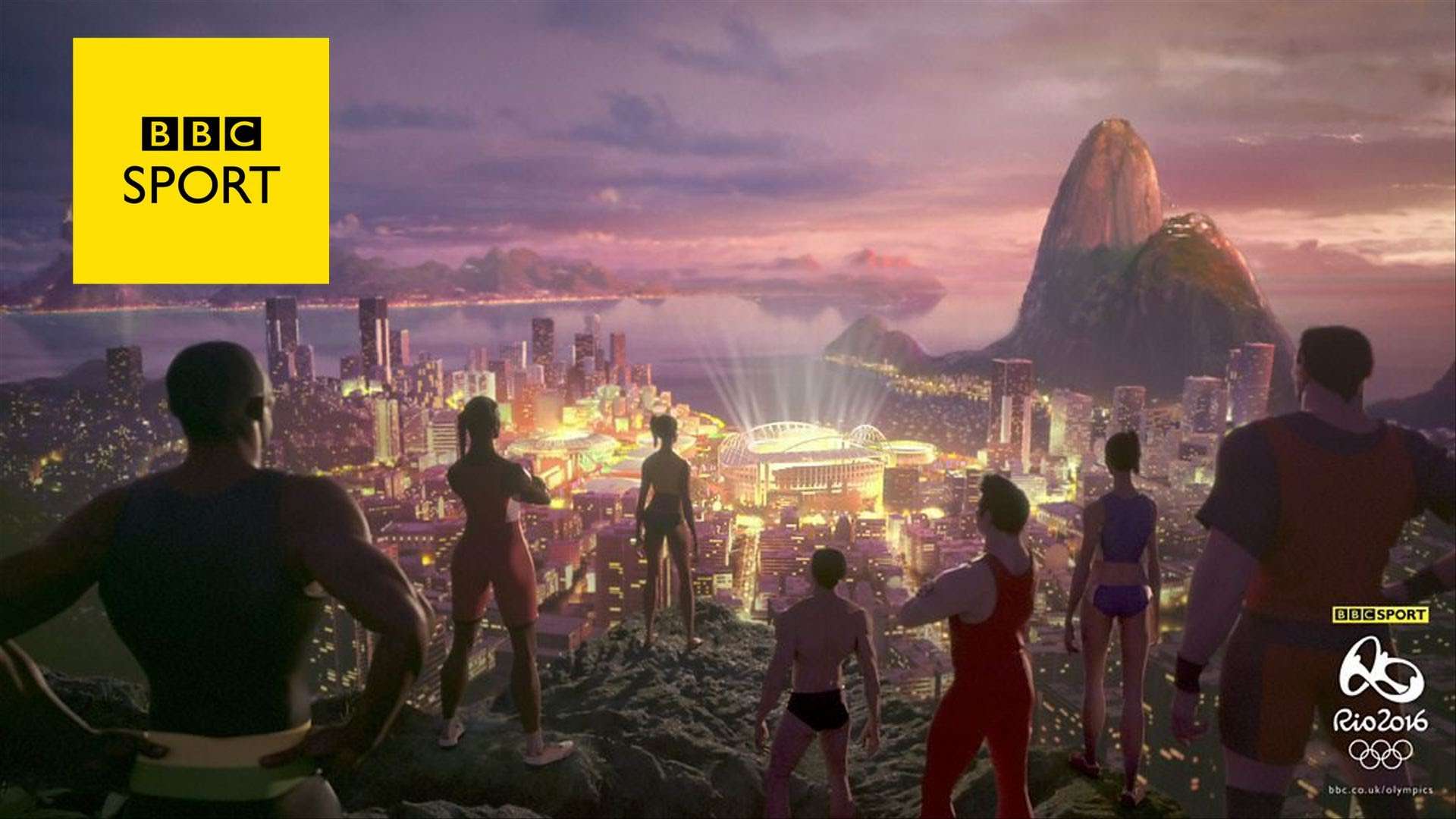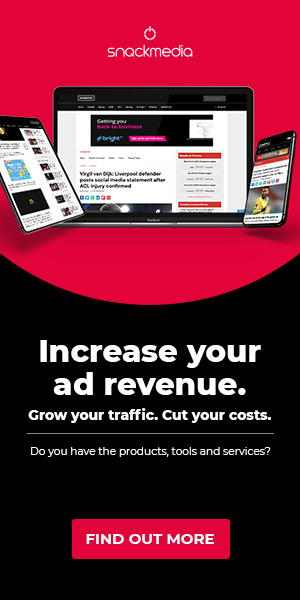Delivering BBC Sport’s social media offer for the Rio Olympics
Rio 2016 was a truly digital Olympic Games, exceeding all the records set during London 2012. More than 68 million UK unique browsers visited the BBC Sport website to follow the incredible exploits of Team GB’s athletes – an increase of 29 million on four years ago.
Social media is one of the key ways we support our cross-platform coverage, engaging an audience of more than 30 million fans and followers across BBC Sport’s social accounts. Our focus is on reaching audiences, particularly underserved audiences, and where possible bringing them back to the BBC. This was central to everything we delivered around Rio, supporting major live events and programmes and using social media to create content on our own platforms.
It’s important for us to employ people in our target social media audience who have a real understanding of what works and what doesn’t on these platforms. So a small BBC Sport social media team was based in our main office in Media City, Salford, while two other members of the team were with the broadcast operation in Rio.
Those staff in Brazil were responsible for integrating social media into our coverage to provide immediate reaction to events or to allow our audiences to interact with our programmes. They also helped oversee Facebook Lives in Rio with BBC talent and Team GB medal-winning athletes.
Together, we delivered a variety of activities across a range of platforms:
On Facebook
More than 80% of our 11.3 million fans of the BBC Sport Facebook page are aged 34 or under. We wanted to both capture the major moments – with incredible engagements around British gold medals – and drive people to the BBC Sport website.
The Olympics has the ability to connect way beyond more traditional sports audiences. So as well as developing the way in which we sell our content on social networks, we evolved the way it’s commissioned for the BBC Sport website. We focused on the winning athletes, of course, but also on the human interest stories, generating high levels of engagements, particularly from female users.
One in four Facebook users globally saw content from BBC Sport during August, with the page reaching 420 million accounts. And users weren’t just consuming content on our Facebook page, they were clicking through to the website.
In the week of the 2014 World Cup final, there were 270,000 referrals from the BBC Sport Facebook page to the BBC Sport website. During the first week of Rio we had 6.2 million referrals back to the BBC from posts on that same page.
On Twitter
We aimed to provide an outstanding service around the live events, signposting users to the 24 live streams available on our own digital platforms and encouraging audiences in the UK to watch key catch-up moments they may have missed overnight.
With a team in place around the clock, our volume of tweets was much higher than normal, but with a relaxed tone, impactful graphics and a focus on capturing all the big moments, irrespective of whether they involved a Team GB athlete.
The @bbcsport account saw unprecedented reach, particularly as close collaboration with our colleagues in the news team meant all the big moments were cross-promoted across their major accounts, in addition to being shared by BBC talent and external organisations such as Team GB.
During the course of the Olympics, the account achieved 1.3 billion impressions – the highest reach of any account on Twitter during this period – and according to a Crowdtangle list of 18,000 major Twitter accounts, @bbcsport had the ninth highest numbers of interactions, only behind the likes of Donald Trump, Kanye West and Justin Bieber! Considering @bbcsport has only 6.1 million Twitter followers, we were very proud of this achievement.
GB women won 4 x 400m relay bronze to claim GB's 66th medal of #Rio2016https://t.co/FYgud0VA8o pic.twitter.com/MYSzCl2QDf
— BBC Sport (@BBCSport) August 21, 2016
On Instagram
The BBC Sport account went through 700,000 followers during the course of the Olympics, capturing key moments with strong imagery, and a selection of daily videos.
Native social video and our coverage on You Tube
Whilst our aim is to keep some of the key moments on our own digital platforms, to encourage users to come to the BBC’s own services and build habitual use of online BBC platforms, we also recognised the benefits of placing some content natively onto social platforms. During the summer of sport, there were millions of views for Olympics content on the recently created BBC Sport You Tube channel and there were over 280 million Facebook video views on the BBC Sport and Match of the Day pages between 1 June and 22 August. This compared to 157 million across the whole of 2015.
Twitter Moments
We curated a variety of BBC Sport Twitter moments throughout the Games with the most watched video not coming from the sport but instead, the now infamous couple ‘reading a book’ on Copacabana beach in the background of Dan Walker’s BBC Four show.
Snapchat
For the first time around a major multi-sport event we signed a partnership agreement with Snapchat to allow daily live Olympics stories, which contained promotional messages encouraging viewers to watch live on the BBC. The stories, including content provided by BBC Sport journalists as well as fan and athlete user-generated content, were viewed by over half of Snapchat’s user base in the UK over the 17 days, reaching a young and female demographic that might not normally consume BBC Sport.
360 video
Among innovations at Rio, we provided users with a unique way of following the Games in 360 degrees, with daily highlights uploaded onto You Tube and Facebook, achieving over 900,000 views.
This supported a dedicated BBC Sport 360 App that was available for users to download for free during the Olympics.
UGC
And we set up a dedicated Olympics user-generated content team, using a variety of curation tools to capture the best news and human interest stories as fast as we could.
Audience Services
We also used social media as a tool to provide information on BBC coverage and, crucially, reply to fan queries around the Games, such as how to follow coverage of their favourite sport. In all, our audience services team provided more than 1,000 replies on social media.
#GetInspired
Finally, the BBC inspired people across the country to get active, with 930,000 unique browsers to the Get Inspired website and more than 400,000 to the activity finder. The top five activity guides visited were cycling, gymnastics, swimming, athletics and running and there were daily Facebook Lives held at venues around the country during the Olympics, offering practical tips for viewers to get involved in a range of sports.
I think it’s fair to say that this summer we successfully reached and engaged our audiences both on the BBC and via our social platforms. It will be fascinating to watch how this space evolves by the time we get to Tokyo 2020.
About author
You might also like
SPORTEL 2021: Day One Recap
This year’s prestigious SPORTEL convention kicked off in sunny Monaco today, welcoming a host of familiar faces as well as plenty of new ones. Doors opened at 8:30am with businesses
Six Founding Riders Set To Bring The Vision Of The UCI Track Champions League To Life
Olympic Champions, UCI World Champions and World Record holders join the new track cycling competition debuting in November 2021 The UCI Track Champions League is delighted to announce that six
Sports related spending to soar this summer as pre-pandemic life resumes
New insights from eBay Ads UK reveal the potential for brands to engage with an excited but nervous nation as sports events get back on track As pubs and indoor








